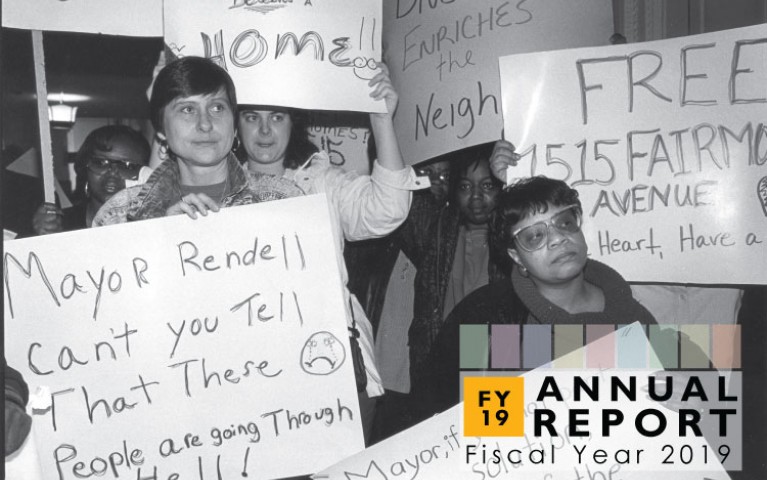Tackling Obstacles, Opening Doors

The building was just what we were looking for. The beautiful solidly built four-story structure (originally a casket factory and later a furniture display warehouse) would serve perfectly as our first permanent housing residence for many of the people we had been working with who still needed to permanently break the cycle of homelessness with a place of their own.
It would be a challenge – securing financing, housing vouchers, permits. We even anticipated the usual protests from some in the neighborhood, an inevitable part of developing housing for people with special needs.
But we didn’t expect the intense organized campaign to keep us out of the neighborhood. For the next five years, we were fighting in courtrooms, in government offices, in the streets, and in the halls of public opinion. The struggle to “free 1515” became more than just an effort to secure this building for our use – it became a fundamental assertion of human rights and human dignity.
A few weeks after 24 members of our community and supporters of fair housing engaged in civil disobedience to highlight the urgency of the issue, and on the brink of an appeal to the U.S. Supreme Court, our legal effort was vindicated with a fair housing decision in our favor. 1515 would soon be free, and 48 people would soon walk into homes of their own.